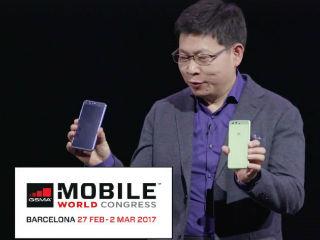Huawei made is marks early at this year’s Mobile World Congress, unveiling its new P10 flagship smartphones and smart watches

The Chinese company has aspirations to be number one as it moves to make more expensive devices aimed at western markets. In 2011 it shipped 1m handsets; last year this figure rose to more than 139m. ‘Smartphones are becoming some kind of commodity but technology is evolving’, says Richard Yu, chief executive of Huawei’s consumer business since 2011.
by
N. Peter Kramer
The company, the world’s third largest smartphone vendor, seized its opportunity to make a slash, with the expectation that rival Samsung would not use MWC to unveil its new flagship.
Few consumers had heard of Huawei in 2011, the year in which its Board decided to focus on breaking into the smartphone market. Six years later, Huawei has achieved its ambition, being now one of the world’s leading suppliers of telecoms equipment; ranking alongside Ericsson, it has also become the third biggest vendor of smartphones by market share.
The Chinese company has aspirations to be number one as it moves to make more expensive devices aimed at western markets. In 2011 it shipped 1m handsets; last year this figure rose to more than 139m. ‘Smartphones are becoming some kind of commodity but technology is evolving’, says Richard Yu, chief executive of Huawei’s consumer business since 2011.
After widespread promotion on social media ahead of the launch, Huawei finally took the wraps off the P10 and P10 Pus smartphones, successors to last year’s P9; with the devices compared heavily to the iPhone7 and the Galaxy S7 at the presentation. However, Richard Yu said that smartphones sales are not the limit of Huawei’s ambitions, as the company looks to move into artificial intelligence and the realm of everything connected devices, known as the Internet of Things (IoT).
While smartphones will stay a core part of the business, Huawei is investing more in services that the phones can deliver as a means to drive future sales. ‘Huawei is working more and more on AI and VR. Smartphones become to be a personal assistant’, Mr Yu said. ‘Behind the smartphone are big data and AI processing. The phone in the future is like a robot’.
Huawei is also experimenting with wearables. Its Watch2, which uses the Android operating system, has online connectivity and acts as a fitness monitor, was launched at the MWC.
The company still faces some hurdles on its way to the top sales spot. Its name is still not as well-known as those at the pricier end of the market. Richard Yu also said Huawei needs more time to penetrate in the US, where it is ‘behind’ compared to other parts of the world.
*Mr. Kramer is a special guest at the Mobile World Congress of Huawei Technologies.
EBR’s Editor-in-chief N. Peter Kramer is among the 100.000 visitors from 200 countries to MWC 2017. The annual Mobile World Congress in Barcelona is the largest gathering of the mobile industry in the world. This article is part of a series included in EBR's special report "WMC 2017 - The Next Element"



